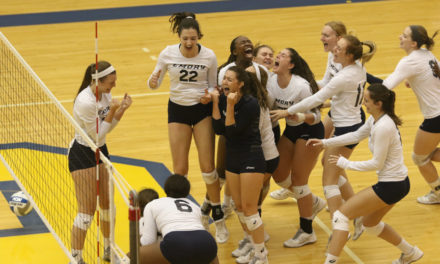The 2012 MLB playoffs have provided no shortage of drama. We’ve had extra wild cards, questionable infield flies, high-profile benchings and, most notably, appearances in the World Series by a pair of red-hot underdogs in the Tigers and Giants. And yet, something feels awfully trite about Tim McCarver’s declaration that “baseball’s two best teams” are facing off in the Fall Classic. Yes, the Tigers and Giants have defied expectations and knocked off a pair of favored teams in dramatic fashion on their way to the championship – but haven’t we seen this before?
Problem is, we have, and for several years in a row at that. The Tigers and Giants, while certainly two impressive, evenly matched clubs, were not the best teams in the MLB this year. Nor were the Cardinals in 2011, or the Giants in 2010, or the Phillies in 2008, to provide a few recent examples.
It’s not difficult to tell. Undoubtedly the best feature of Major League Baseball is its regular season–a season so long that it leaves literally no doubt as to the best teams by its conclusion. Other sports’ regular seasons are shorter and sloppier. Teams don’t have time to hit their stride and, as a result, nearly half the league’s teams are invited to the postseason (that’s not an exaggeration–53% of NHL and NBA teams make the playoffs).
Baseball doesn’t have that problem. The regular season is stretched out so long through 162 games that the food chain is clearly established by the time October rolls around. Then the fans–and worse, the teams–are subjected to a messy playoff system that fails to reward the best teams, and got even messier this year with the addition of a second wild card game.
2011 was a prime example. The Phillies owned the league’s best record by far, soaring into the playoffs with 102 wins and then promptly getting tripped up in a quick five-game wild card series by the red-hot Cardinals. No one could argue that the Cardinals weren’t the best team during the playoffs, as they went on to claim the World Series, but here’s the rub–they barely earned it during the season, sneaking in on the season’s last day and finishing a full 12 games worse than the Phillies over the regular season.
The Cardinals were the beneficiaries of a playoff system that rewards late-season surges more than consistency–a theory that works just fine over the course of a 16-game NFL season, for example, but year in and year out undermines MLB’s behemoth of a regular season.
Neither the Tigers nor the Giants were the top team in their league this year, finishing with the third-best records in the AL and NL, respectively. Both had to beat teams with better records in the postseason, yes, but that’s not the issue–the issue is that the playoff system makes it far too easy to do this.
There’s no real way to remedy the problem, and there shouldn’t be; after all, upsets make for more exciting games. But the system undoubtedly needs tweaking.
First off, the division series should be bumped to a full seven games. This allows for a superior team’s depth to play more of a factor in the series and avoids the all-too-common scenario of a hotshot squad carried into the semifinals by a single stalwart starting pitcher (aka Justin Verlander powering the 88-win Tigers past the 94-win Athletics this year).
That brings us to the matter of the second Wild Card. Presumably added to increase fan interest for middling clubs, it serves as nothing more than a gimmicky addition to an otherwise fine regular season. The five-game division series is already too short–why add a sudden death-type game that already did a quick job in eliminating a team (the Braves) that finished a full six games ahead of its opponent?
Fans would surely cry foul at its removal–and justly so, as it certainly adds another layer of drama to the postseason–but it’s another easy entry pass to the playoffs for a team that usually won’t deserve to be there.
Would an altered playoff system have dramatically changed the results this season? Probably not, if the ease with which the Tigers yawned through the ALCS and the Giants’ dramatic comeback are anything to go by.
Upsets are a quintessential part of sports, as is the fact that championship-caliber teams don’t get a free pass for their performance in the regular season. But still, the addition of the second Wild Card is an unsettling first step toward the 53 percent trend, a trend that the MLB has rightfully avoided until 2012.
As for the World Series? With the momentum they’ve gathered from their seven-game battle with the Cardinals while the Tigers twiddled their thumbs in the clubhouse, I’d be surprised if the Giants don’t pull it off. It’s not about which team is better–it’s about which team has the hot hand.
– By Ryan Smith
The Emory Wheel was founded in 1919 and is currently the only independent, student-run newspaper of Emory University. The Wheel publishes weekly on Wednesdays during the academic year, except during University holidays and scheduled publication intermissions.
The Wheel is financially and editorially independent from the University. All of its content is generated by the Wheel’s more than 100 student staff members and contributing writers, and its printing costs are covered by profits from self-generated advertising sales.





